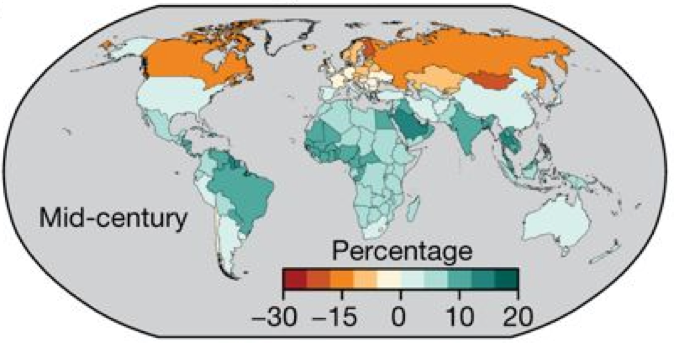A recent study published by Nature estimated that limiting global warming to 1.5°C — instead of 2°C — above pre-industrial levels would avoid about US$30T in damages. These US$ 30 000 billions, far more than the projected costs to reach this target, are considered the toughest among the ones set in the global Paris agreement, given that we have already beaten 1°C of man-made warming.
For this estimation, researchers used global data from the last 50 years to assess how the increase in temperature impacts on factors including agricultural output, labour productivity and health. Results showed how these affect the GDP and other economic measures in most nations.
Almost all the world’s poorest countries would benefit economically if the target is reached. In fact, 90% of global population would benefit, including countries like US, China, Australia and Japan.

Gain in GDP per capita from achieving 1.5°C versus 2°C (Source: Burke et al., 2018).
Some economists expressed their opposing views regarding the calculations used for these projections. These sorts of extrapolations and predictions pose some challenges, including the limited accuracy in translating the impacts of climate change into economic damages. They also argued that future societal adaptation will probably involve innovative technologies (with lower costs). Therefore, adaptation might result in lower economic damages than predicted. However, the assessment avoided complex calculations including valuable non-market sectors, such as ecosystem services and biodiversity.
Considering these adjustments, including the valuation of different ecosystem services (see Jost & Gentes, 2014; Fig 9.2), the overall benefits of reaching tougher targets, such as the 1.5°C set in the global Paris agreement, largely outweigh their cost of implementation, thus making the benefits of action even greater!
- Log in to post comments

CRC Comments